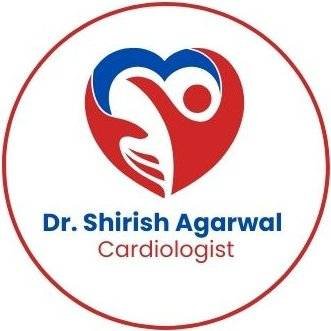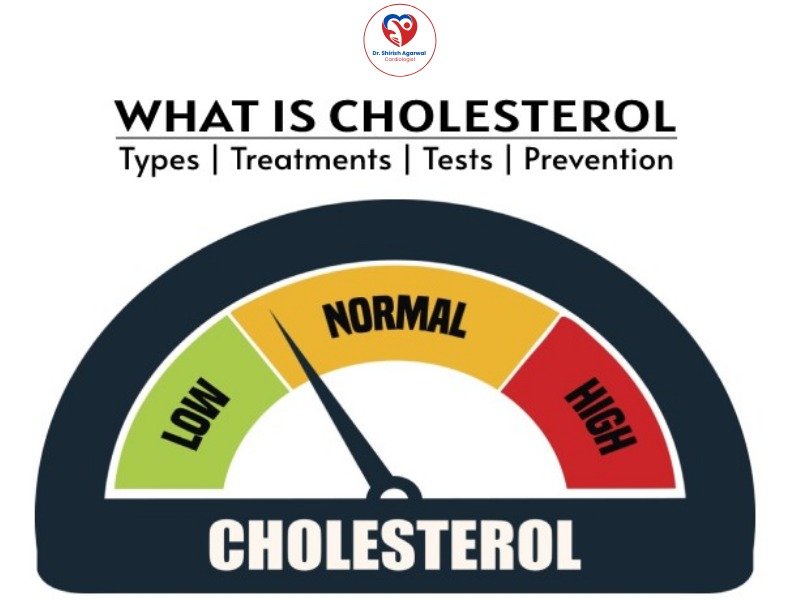Understanding Cholesterol: The Good, Bad, and Essential
Cholesterol is a term that often brings concerns about heart health to mind. But what exactly is cholesterol, and how does it impact our well-being? In this blog, we’ll explore the different types of cholesterol, their roles in the body, and why it’s crucial to manage cholesterol levels effectively.
For expert guidance and treatment, we’ll also highlight insights from Dr. Shirish Agarwal, the best cardiologist in Indore for cholesterol management.
What is Cholesterol?
Cholesterol is a sticky, fat-like molecule found in all cells of the body. It is necessary for the creation of hormones, vitamin D, and chemicals that aid in digestion. Although your body creates all of the cholesterol it requires, cholesterol can also be present in animal-derived meals such as meat, poultry, and full-fat dairy products.
Types of Cholesterol
Cholesterol travels through your bloodstream in small packages called lipoproteins, which are made of fat (lipid) on the inside and proteins on the outside.There are two major types of lipoproteins that transport cholesterol throughout the body:
Low-Density Lipoprotein (LDL) – The “Bad” Cholesterol
LDL cholesterol is often referred to as “bad” cholesterol. High levels of LDL cholesterol can lead to plaque buildup in your arteries, which increases the risk of heart disease and stroke. This buildup can narrow the arteries, making it harder for blood to flow through them.
High-Density Lipoprotein (HDL) – The “Good” Cholesterol
HDL cholesterol, also known as “good” cholesterol, helps eliminate other types of cholesterol from your system. HDL transports cholesterol from different parts of your body to your liver, which eliminates it. Higher levels of HDL cholesterol are linked to a lower risk of heart disease.
Why is Managing Cholesterol Important?
Maintaining regular cholesterol levels is essential for avoiding heart disease and other cardiovascular problems. High cholesterol typically doesn’t cause any symptoms, so many people are unaware that their cholesterol levels are too high. This is why regular cholesterol screening is important.
Risk Factors for High Cholesterol
Several risk factors for high cholesterol include:
- Diet: Consuming saturated fat, trans fats, and cholesterol-rich foods can raise your cholesterol levels.
- Weight: Being overweight or obese raises your risk of higher cholesterol levels.
- Physical Activity: Lack of exercise can lead to weight gain, which can raise your cholesterol levels.
- Age and Gender: Cholesterol levels naturally develop with age. Women’s LDL cholesterol levels frequently rise during menopause.
- Family History: High cholesterol can run in families, increasing your risk.
How to Manage Cholesterol Levels
Managing cholesterol levels often involves lifestyle changes and, in some cases, medication.
Dr. Shirish Agarwal, the best cardiologist in Indore, offers comprehensive treatment plans for managing cholesterol effectively.
Lifestyle Changes
- Healthy Diet: Eat a diet rich in fruits, vegetables, whole grains, and lean proteins. Avoid saturated fats and trans fats.
- Regular Exercise: Try to get in at least 30 minutes a day, most days of the week, of moderate-intensity exercise.
- Weight Management: Maintain a healthy weight through diet and exercise. Quit Smoking: Smoking reduces HDL cholesterol and is hazardous for your heart health.
Medications
Sometimes, lifestyle changes alone are not enough to manage high cholesterol. In such cases, medications may be necessary. Dr. Shirish Agarwal, renowned as the best cardiologist in Indore, can prescribe medications such as statins, bile-acid-binding resins, and cholesterol absorption inhibitors, depending on your specific needs.
Conclusion
Cholesterol plays a vital role in your body, but maintaining the right balance is key to preventing heart disease and other health issues. By understanding the differences between LDL and HDL cholesterol and adopting healthy lifestyle habits, you can manage your cholesterol levels effectively. For personalized treatment and expert advice, consider consulting Dr. Shirish Agarwal, the best cardiologist in Indore, who specializes in cholesterol management and cardiovascular health. Don’t wait until it’s too late—take charge of your heart health today

